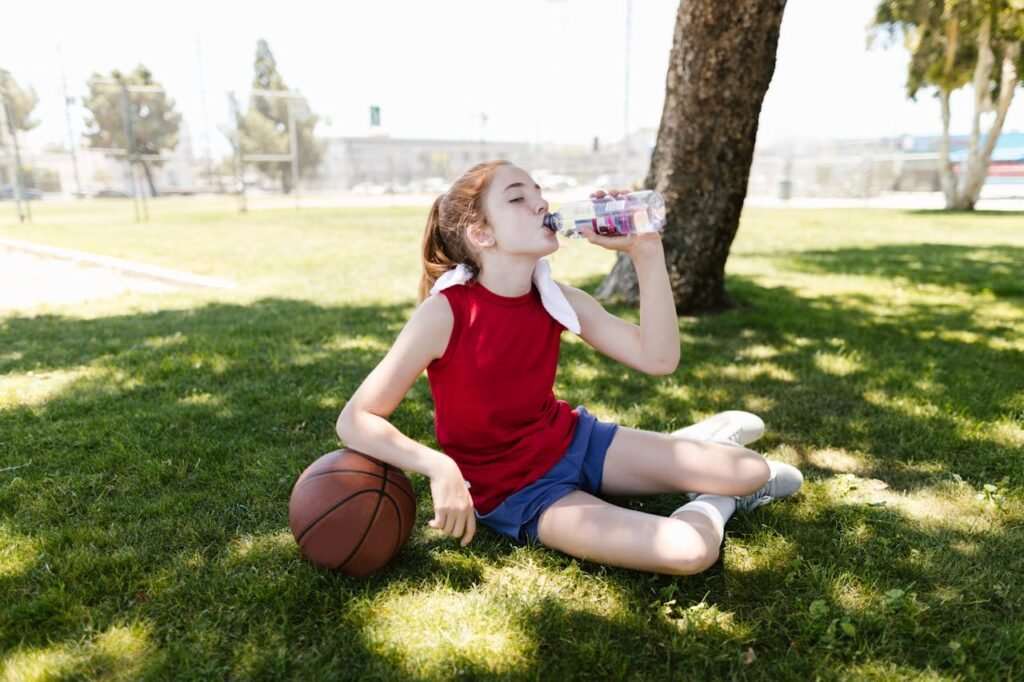Why Pediatricians Take Dehydration So Seriously
Every pediatrician knows that dehydration in children can escalate quickly—from a mild concern to a medical emergency within hours. That’s why recognizing the subtle and not-so-subtle signs of dehydration early can make all the difference. Whether it’s due to a heatwave, persistent vomiting, diarrhea, or just not enough fluid intake, dehydration can disrupt the body’s balance in ways that pediatricians work tirelessly to prevent.
As parents, understanding the red flags pediatricians pay attention to can equip you with the tools to act quickly and confidently. In this in-depth guide, we’ll uncover the signs of dehydration pediatricians don’t want you to miss—so you never second-guess when your child’s health is on the line.
Understanding Dehydration Beyond the Basics
Pediatricians define dehydration not just as fluid loss, but as a condition where the body’s electrolyte balance is disturbed. In children, this is especially dangerous due to their higher surface area-to-body mass ratio and more rapid fluid turnover. They lose fluids faster than adults—and may not always express thirst or fatigue effectively.
But pediatricians don’t want parents to rely on the obvious signs alone. Dehydration often starts subtly, and by the time symptoms are apparent, intervention may already be urgent.

The First Subtle Signs Pediatricians Watch Closely
1. Dry Lips and Sticky Mouth
A pediatrician will often begin by examining a child’s mouth. If lips appear cracked or the inside of the cheeks feel sticky rather than moist, it’s an early warning. These indicators mean saliva production is already being compromised due to fluid loss.
2. Decrease in Urination
Another early clue is reduced urination. Pediatricians routinely ask how many wet diapers an infant has had in 24 hours, or how often a toddler is visiting the bathroom. A significant decrease—especially if urine is dark yellow—signals that the kidneys are conserving water because of dehydration.
3. Less Active or Irritable Behavior
Children experiencing dehydration may suddenly seem unusually quiet or cranky. Pediatricians link this behavioral change to fatigue and a drop in blood volume, which limits oxygen delivery to the brain.
Mid-Stage Dehydration: When Pediatricians Become Seriously Concerned
4. Sunken Eyes or Fontanelle
For babies, pediatricians check the “soft spot” on the head, known as the fontanelle. If it appears sunken, it’s a significant dehydration marker. In older children, eyes may appear hollow or shadowed, which points to fluid depletion.
5. Rapid Heartbeat
Pediatricians are trained to catch increases in heart rate that most parents may overlook. When dehydration progresses, the heart works harder to circulate the reduced blood volume, resulting in a faster pulse. In some cases, it may even cause irregular heart rhythms.
6. Lack of Tears While Crying
Healthy children produce tears. If your child cries but their eyes remain dry, this is a classic warning sign pediatricians emphasize to parents. It’s an easily observable sign and one that signals moderate to severe dehydration.
Severe Dehydration: Red Flags That Warrant Immediate Pediatric Care
7. Cold Extremities and Mottled Skin
When blood volume decreases dangerously, the body prioritizes vital organs. Blood flow to the skin and limbs is reduced, leading to cold hands and feet or patchy, discolored skin. Pediatricians consider this a late and serious sign that requires urgent rehydration therapy.
8. Lethargy or Unresponsiveness
If your child becomes overly drowsy, is hard to wake, or shows signs of confusion, this is no longer a wait-and-watch scenario. Pediatricians treat lethargy in dehydrated children as a medical emergency requiring IV fluids and careful electrolyte monitoring.
9. Sunken Abdomen or Severe Weight Loss
Rapid weight loss—especially in infants—is a symptom pediatricians take very seriously. It often accompanies diarrhea and vomiting and reflects significant fluid loss. A sunken abdomen or rib visibility also suggests severe dehydration, needing pediatric intervention without delay.
Pediatrician-Approved At-Home Checks for Dehydration
Parents often ask pediatricians what they can do at home to assess hydration. Here are simple pediatrician-approved checks:
-
Skin Turgor Test: Gently pinch the skin on the back of the hand or abdomen. If it doesn’t spring back immediately, it’s a sign of fluid loss.
-
Capillary Refill: Press down on the nail bed until it turns white. Let go. If it takes longer than 2 seconds to return to pink, blood flow may be reduced due to dehydration.
However, pediatricians warn not to rely on these alone. These checks are supplemental, not substitutes for a professional evaluation.
Pediatrician Recommendations: When to Call the Doctor
It’s not about panicking—it’s about acting early. Pediatricians recommend contacting your provider if you notice:
-
Vomiting or diarrhea lasting more than 12 hours
-
No urination for 6–8 hours (or fewer than 4 wet diapers/day in infants)
-
Inability to keep fluids down
-
Any signs of confusion, listlessness, or dry crying
If you’re unsure whether your child’s dehydration is mild or moderate, most pediatricians advise erring on the side of caution and scheduling a same-day visit.
Why Pediatricians Are Essential in Dehydration Management
Unlike urgent care centers or online advice forums, pediatricians provide tailored, age-specific rehydration strategies. They:
-
Monitor electrolyte levels with lab tests
-
Provide safe oral rehydration solutions
-
Know when to escalate to IV hydration
-
Understand how dehydration interacts with other conditions like asthma, diabetes, or speech delay issues
For example, in children who already have developmental delays or speech delays, such as discussed in this guide on speech delay, dehydration can exacerbate behavioural regressions, irritability, or difficulty communicating discomfort—making pediatric oversight all the more essential.
How Dehydration Impacts Children with Underlying Health Concerns
Pediatricians stress that not all children experience dehydration equally. In children with pre-existing health concerns like childhood obesity, dehydration can worsen fatigue and interfere with metabolic stability. According to pediatrician tips for managing childhood obesity, hydration is a core part of weight management and energy balance.
Dehydration in this context isn’t just a matter of thirst—it’s a matter of health regulation. Pediatricians guide families in creating hydration habits as part of long-term wellness goals, particularly for kids with comorbidities.
Pediatrician Tips for Preventing Dehydration in Children
1. Encourage Regular Fluid Intake
Don’t wait until your child is thirsty. Pediatricians recommend offering water throughout the day, especially before outdoor play, sports, or meals.
2. Use Oral Rehydration Solutions
For children prone to vomiting or diarrhea, pediatricians often recommend low-sugar, balanced oral rehydration drinks. Avoid sports drinks with high sugar content.
3. Incorporate Hydrating Foods
Fruits like watermelon, oranges, and cucumber are pediatrician-approved hydration boosters. These are especially useful for picky eaters.
4. Set a Hydration Routine
Just like brushing teeth, pediatricians suggest making water breaks a part of your child’s daily schedule. It’s a behavioral investment that pays off in long-term health.
Pediatrician Insights on Seasonal and Environmental Risks
Hot weather isn’t the only threat. Pediatricians often see a spike in dehydration during:
-
Cold seasons, when indoor heating reduces humidity and fluid loss occurs via breath
-
Flu season, where vomiting or fever accelerates fluid loss
-
Back-to-school transitions, where routines change and hydration habits may lapse
Pediatric care adjusts to these variables—parents should too. Pay close attention to changes in your child’s environment and adjust hydration efforts accordingly.
When Pediatric Care Becomes Critical
Sometimes, no amount of water or popsicles at home is enough. Pediatricians advise heading to urgent care or the emergency room if:
-
Your child is too weak to walk or stand
-
There’s persistent vomiting with bile or blood
-
Diarrhea is watery and non-stop for over 24 hours
-
There are signs of confusion, hallucination, or incoherent speech
These aren’t just signs of dehydration—they’re signals your child needs urgent pediatric care.
Empowering Parents Through Pediatric Support

Dehydration may be common, but it isn’t harmless. Pediatricians are your strongest ally in spotting and treating it early. They train for years to detect subtle clues you might miss. Trusting their expertise and knowing when to involve them is not just about resolving today’s symptoms—it’s about preserving long-term health.
With the support of your pediatrician, you’re not just treating dehydration—you’re raising a healthier, more resilient child.
Trust Pediatric Insight—Don’t Miss the Signs
Dehydration doesn’t always show up with dramatic symptoms. Often, it’s the dry mouth, the missed bathroom trip, or the lack of tears that signals trouble. Pediatricians don’t want you to miss these because they know the cost of waiting.
Whether your child is an infant, a busy toddler, or navigating childhood obesity or speech challenges, hydration is foundational to wellness. By recognising these pediatrician-endorsed signs early and acting decisively, you ensure your child gets the care they need—before dehydration becomes a crisis.
For more guidance on nurturing your child’s health through all stages, explore our other trusted pediatric resources like how pediatricians approach speech delays and top pediatrician strategies for managing obesity in children. Because good pediatric care isn’t reactive—it’s proactive.
